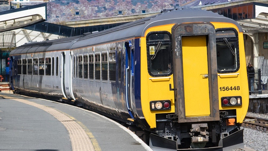Northern Trains has been working with data scientists to save thousands of litres of diesel fuel a year by changing the way trains are driven.
Working in partnership with Chrome Angel Solutions and auticon, the operator has developed a model that calculates the optimal train speed and braking patterns for routes on its network across the North of England.
That information is then used to coach train drivers on their driving styles to use less fuel, while still keeping the trains on time.
In an early test between Middlesbrough and Whitby in North Yorkshire, the model identified a potential 7% saving in fuel consumption, with the added benefit of an equal reduction in CO2 emissions.
Fuel savings will vary on different parts of the network, but Northern says the implications are significant, given its annual fuel bill is in the region of £50million.
Northern is now planning to conduct practical tests on six routes in the North-East to see what fuel and CO2 emission savings are recorded. These routes are:
Bishop Auckland (County Durham) to Darlington (County Durham)
Darlington (County Durham) to Saltburn (North Yorkshire)
Newcastle (Tyne & Wear) to Hexham (Northumberland)
Newcastle (Tyne & Wear) to Whitby (North Yorkshire)
Nunthorpe (North Yorkshire and Kildale (North Yorkshire)
Seaham (County Durham) to Middlesbrough (North Yorkshire)
Rob Warnes, strategic development director at Northern, said: “Along with the rest of the UK rail industry, Northern is working towards phasing out diesel-only trains by 2040.
“However, with only 25% of our network electrified, diesel trains remain integral to our operation and, as such, we want to make sure we operate them in the most fuel-efficient way.
“This has been a fascinating, year-long project and it’s great to see the proof on concept realised so that we can now expand trials and build the case for implementation.”

















Login to comment
Comments
No comments have been made yet.